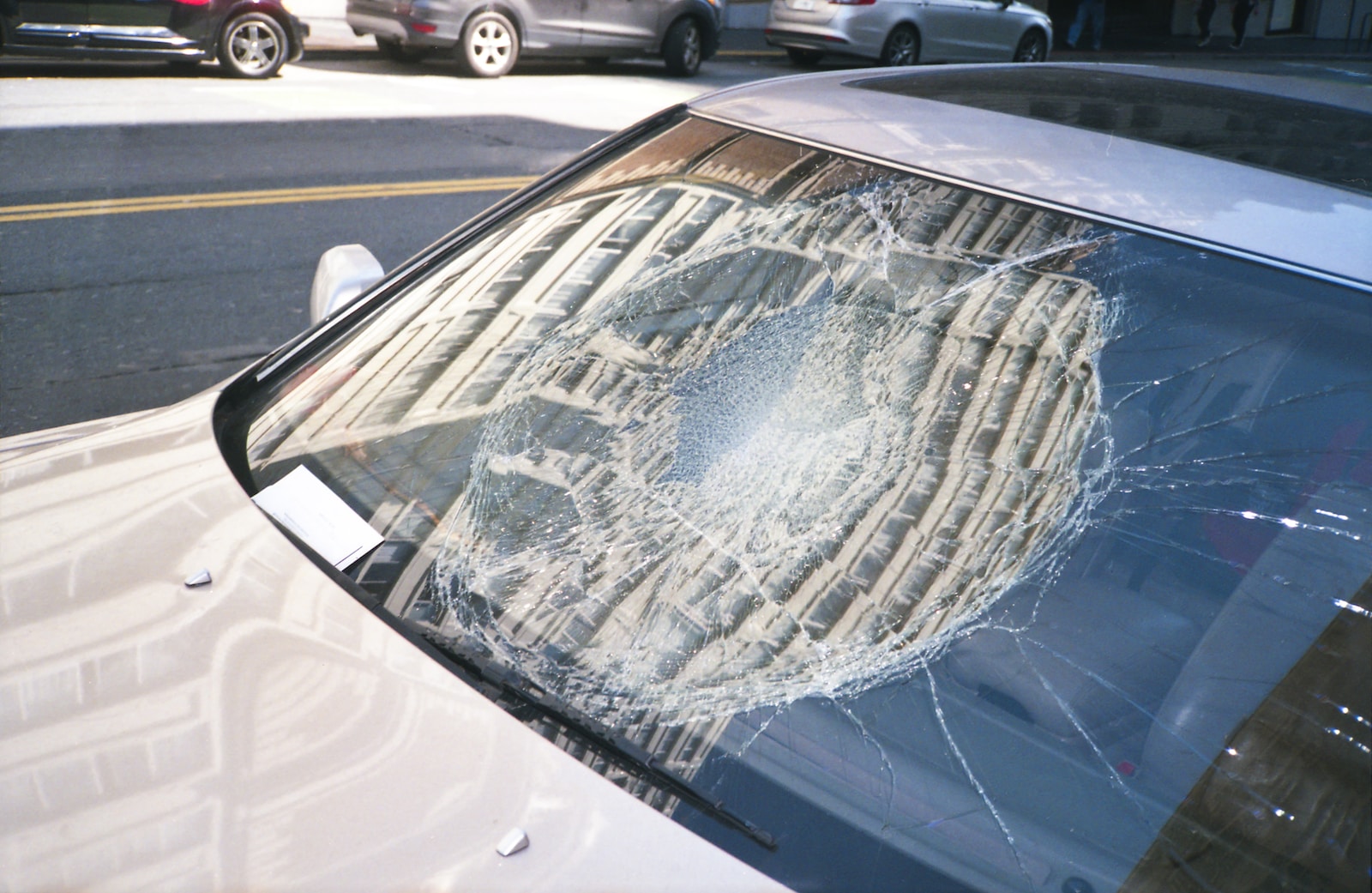Comprehensive car insurance is an optional auto insurance policy that provides coverage for damages to your vehicle caused by non-collision events, such as theft, vandalism, fire, weather-related incidents or hitting an animal.
Comprehensive insurance is not legally required in most states, but it may be required by lenders or leasing companies if you have a loan or lease on your vehicle. Comprehensive insurance can provide valuable financial protection for your vehicle in case of non-collision events.
What does comprehensive car insurance cover?
Comprehensive car insurance provides coverage for various perils. Some commonly covered incidents include:
- Theft: If your vehicle is stolen, comprehensive insurance can help cover the replacement cost.
- Vandalism: If your car is intentionally damaged by vandals, comprehensive insurance will cover the repairs.
- Fire damage: Comprehensive coverage protects against damages caused by fire, including both accidental fires and arson.
- Natural disasters: Comprehensive insurance covers damages caused by hail, floods, hurricanes, tornadoes, and other natural disasters.
- Falling objects: If a tree branch, debris, or any other object falls on your car and causes damage, comprehensive insurance will cover the repairs.
- Animal collisions: Comprehensive coverage includes damages from collisions with animals, such as deer or stray pets.
What doesn’t comprehensive car insurance cover?
While comprehensive car insurance provides extensive coverage, it has limitations. It does not cover the following:
- Collision-related damages: You’ll need collision insurance for damages resulting from collisions with other vehicles or objects.
- Damage caused by uninsured drivers: If an uninsured driver causes damage to your vehicle, comprehensive insurance won’t cover it. Uninsured motorist coverage is needed for such situations.
- Mechanical breakdowns: Comprehensive insurance is not designed to cover repairs or replacements resulting from mechanical breakdowns or wear and tear.
How does comprehensive car insurance work?
When you purchase comprehensive insurance, you’ll select a deductible amount. This is the portion of the claim you’ll be responsible for paying out of pocket before your insurance coverage kicks in. For example, if your deductible is $500 and you file a claim for $2,000 in damages, you’ll pay the $500 deductible, and the insurance company will cover the remaining $1,500.
If your car is damaged beyond repair, which means the cost of repairing it exceeds its actual cash value, your insurance company will pay you the actual cash value of the car. This value is calculated by subtracting depreciation from the car’s replacement cost.
Do I need comprehensive car insurance?
Whether you need comprehensive car insurance depends on your circumstances. Here are some factors to consider:
- Vehicle value: If you have a newer or high-value car, comprehensive insurance might be a wise investment to protect your financial investment in the event of non-collision damage.
- Risk of theft or vandalism: If you live in an area with a higher risk of theft or vandalism, comprehensive coverage can help provide peace of mind and protection for your vehicle.
- Lease or loan requirements: If you have a lease or loan on your vehicle, your lender may require comprehensive coverage as part of the loan or lease agreement.
- Personal financial situation: If you cannot afford to pay for repairs or replacement of your vehicle out-of-pocket in case of non-collision damage, comprehensive coverage may be a wise investment.
On the other hand, you may not need comprehensive insurance if you have an older car with a lower value or enough savings to cover damages to your vehicle in case of non-collision events. Ultimately, the decision to purchase comprehensive car insurance depends on your financial situation and risk factors.
What is a comprehensive deductible?
A comprehensive deductible is an out-of-pocket amount before insurance coverage kicks in for damages to your vehicle caused by non-collision events, such as theft, vandalism, fire, weather-related incidents, or hitting an animal.
The comprehensive deductible is a fixed amount you agree to pay when you purchase your insurance policy and it can vary depending on your policy and insurance company.
For example, if your comprehensive deductible is $500, and a hailstorm damages your vehicle, you will need to pay the $500 deductible before your insurance company covers the remaining cost of repairs. If the cost of repairs is less than the deductible amount, you will need to pay for the repairs out-of-pocket.
When choosing a comprehensive deductible, it’s essential to consider your financial situation and risk tolerance. Selecting a higher deductible can help lower your premiums but may result in higher out-of-pocket expenses if an incident occurs.
What happens if I don’t have comprehensive insurance
If you don’t have comprehensive coverage, you won’t be able to make an insurance claim if your vehicle sustains damage from non-collision events, leaving you responsible for paying for repairs out-of-pocket unless the other driver is liable.
Comprehensive coverage is important for new, high-value cars, whether or not they are financed. If your vehicle is stolen soon after purchase, you could be left without a car and will have to pay out of pocket for the replacement.
However, for older cars with a low market value and no loan or lease requirements, comprehensive coverage may not be beneficial since the small compensation amount may not justify the premium paid. In such cases, it’s important to evaluate the potential costs and benefits and determine whether comprehensive coverage is worth the expense.
When should I file a comprehensive claim?
Filing a comprehensive claim typically does not result in a significant increase in insurance rates. But it’s important to keep in mind that you should not file a claim if the cost of repairs is lower or near your deductible amount. For example, if the damages cost $450 to repair and your deductible is $500, filing a claim may not be worth it, as you only save $50.
While comprehensive claims usually don’t raise your rates, filing multiple claims in a year could cause your insurance rates to increase, regardless of the type of claim. It’s also advisable to consider paying for minor repairs out-of-pocket to avoid the possibility of increased premiums.
In a nutshell: Comprehensive car insurance
Comprehensive car insurance safeguards your vehicle against various risks not caused by collision. It offers peace of mind by ensuring that you’re not left facing a hefty bill in case of theft, vandalism, or other covered events.
Comprehensive insurance is flexible and can be tailored to fit your needs. You can choose a deductible amount that suits your budget and preferences, balancing it with your premium. Having comprehensive coverage protects your investment and ensures that unexpected events don’t derail your financial stability.
Frequently asked questions
Can I add comprehensive coverage to an older vehicle?
Yes, you can add comprehensive coverage to an older vehicle. However, it’s important to consider the car’s value and whether the cost of the coverage justifies its potential benefits.
Will my comprehensive rates increase after filing a claim?
Filing a comprehensive claim does not typically result in a rate increase. However, your rates may be affected if you file multiple claims within a short period.
Is comprehensive insurance required if I have a car loan?
If you have a car loan, your lender may require you to have comprehensive coverage until the loan is fully paid. This ensures that their investment is protected.
How does comprehensive coverage work with a leased vehicle?
When leasing a vehicle, the leasing company typically requires comprehensive coverage. This protects their investment in case of damages or theft.


